Print Your City turns recycled food containers into street furniture
The residents of Thessaloniki, Greece, can now recycle their plastic waste into 3D printed furniture for the city, using a new laboratory set up by Rotterdam studio The New Raw.
The Zero Waste Lab is the latest enterprise of The New Raw's plastic recycling initiative, Print Your City, established in collaboration with drinks brand Coca Cola.
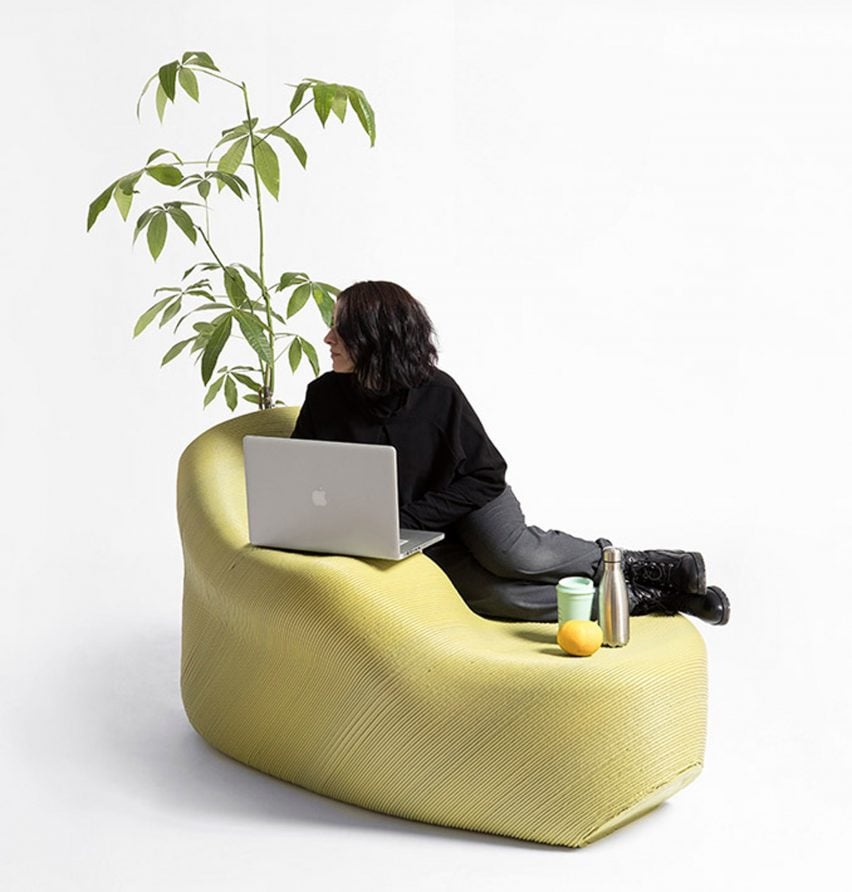
It offers local residents a recycling facility for their plastic waste as well as the ability to choose what the waste is turned into, with a robotic 3D-printing arm that can transform the sorted plastic into street furniture.
Users can customise the furniture via a website, choosing between different colours and functionalities and also selecting which public space in the city they would like to see it in.
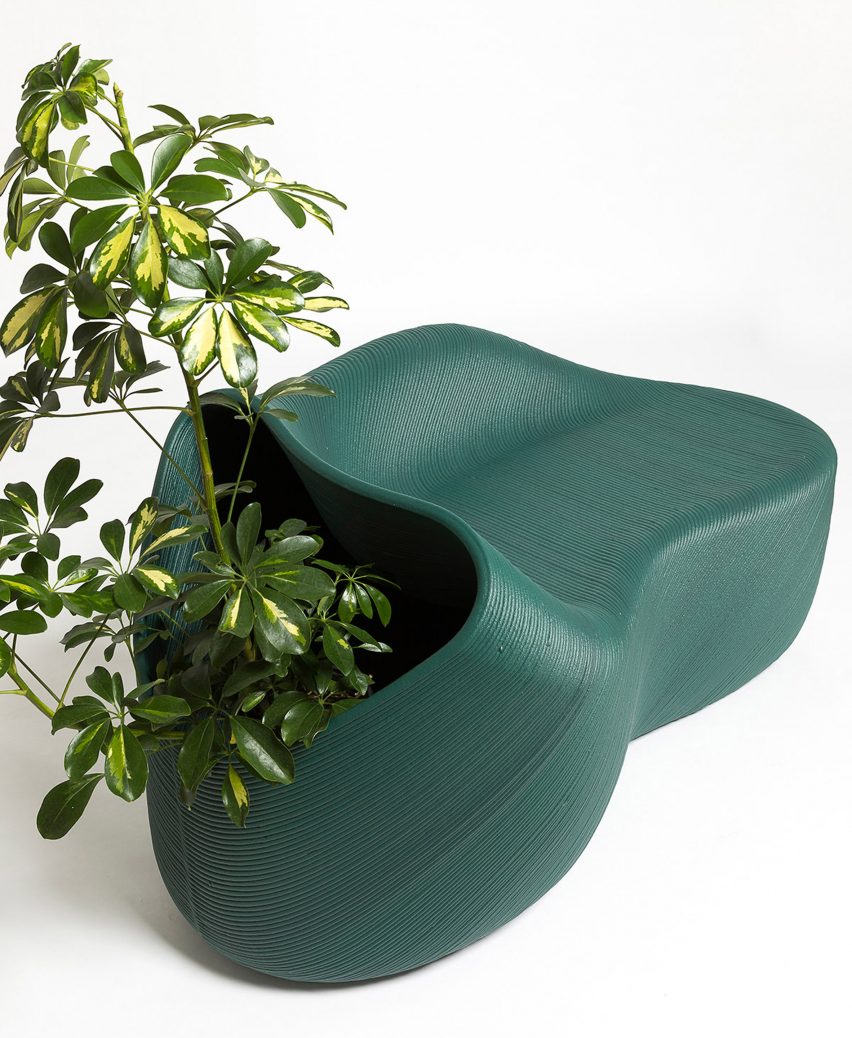
Options for each object include a planter, a bike rack, a feeding bowl for dogs and a bookcase, among other functions.
Once the design is chosen, the website tells the user how much recycled plastic would be needed to make the object. For instance, a large triangle-shaped bench with a library and an urban garden would require 90 kilograms of recycled plastic to build.
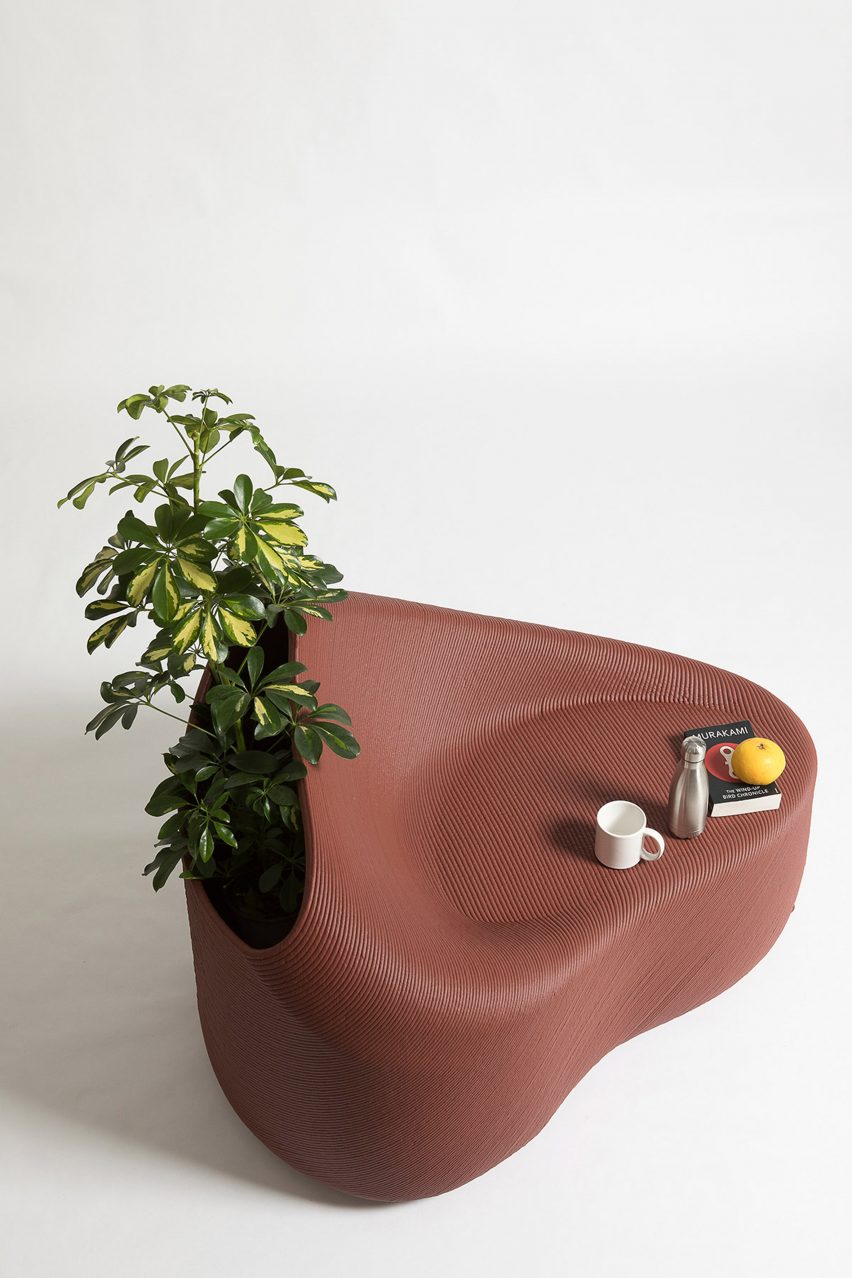
"Plastic has a design failure. It is designed to last forever, but often we use it once and then throw it away," said The New Raw founders Panos Sakkas and Fonteini Setaki.
"With Print Your City, we endeavour to show a better way of using plastic in long lasting and high value applications."
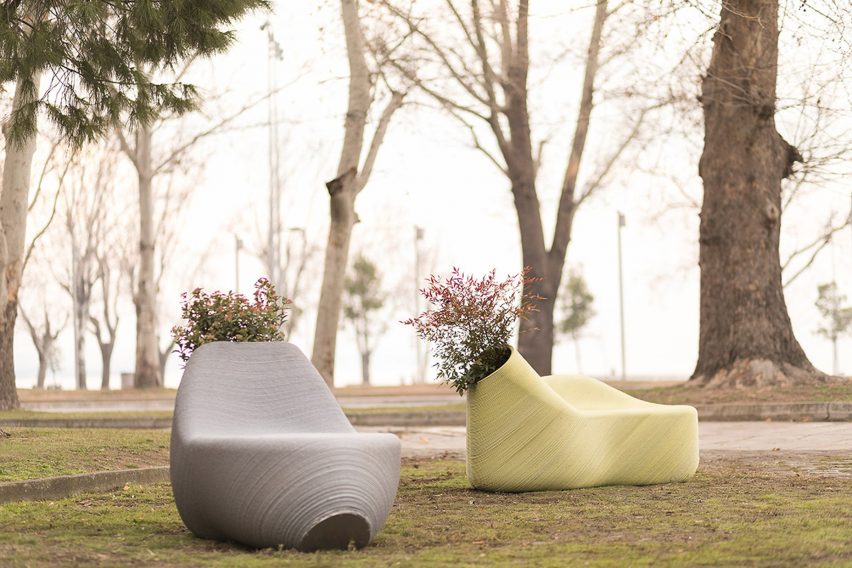
The furniture is made primarily from PP and PE plastics commonly used in food packaging, which is sourced directly from the plastic waste donated to the lab.
The waste is sorted, washed and shredded before being melted and combined with pigments to create a printable material. The furniture can also be made from PET and PS plastics.
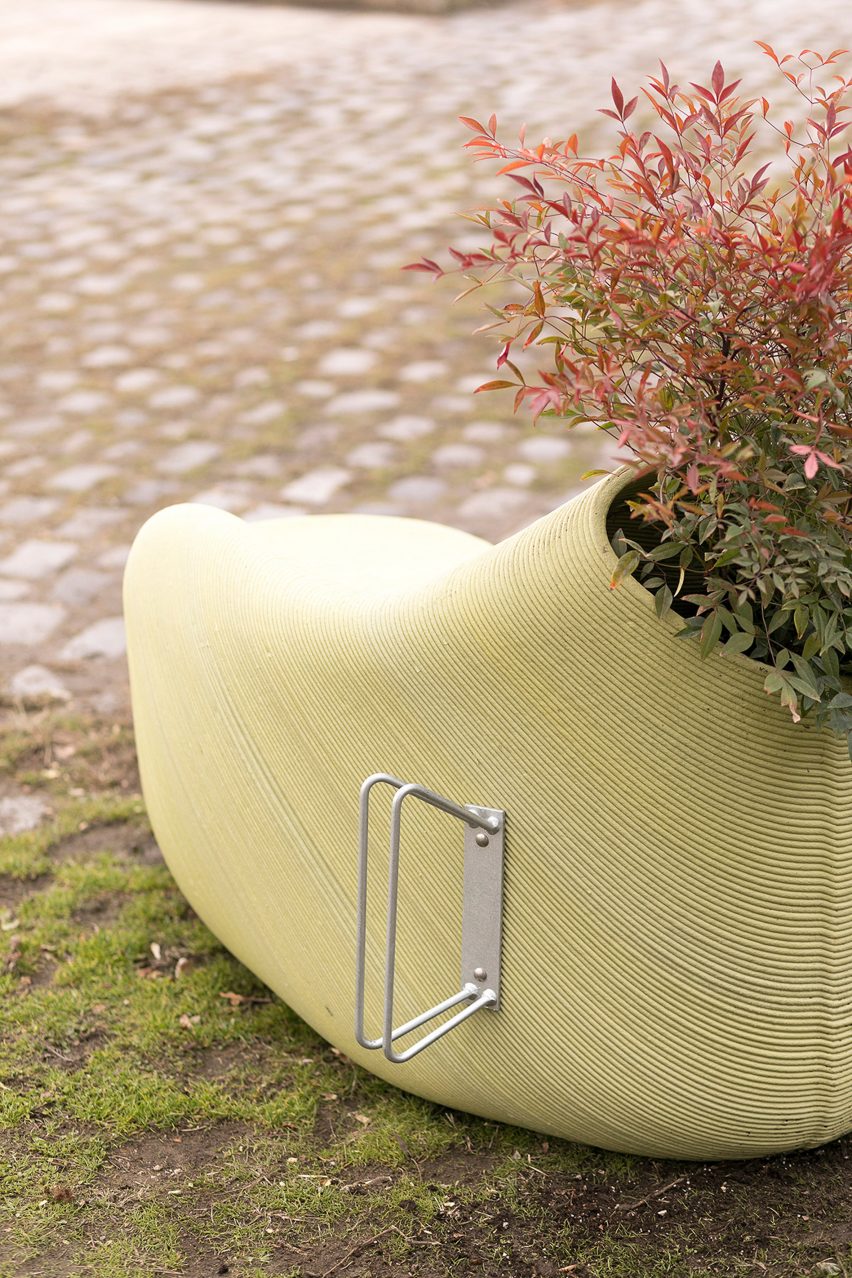
Print Your City aims to engage residents of cities around the world more directly with the recycling process by both turning the waste into objects that can be used by the public and giving them some control over what those objects are and where they might be placed.
Hanth Park in central Thessaloniki became the first public space to be redesigned with Print Your City furniture in January.
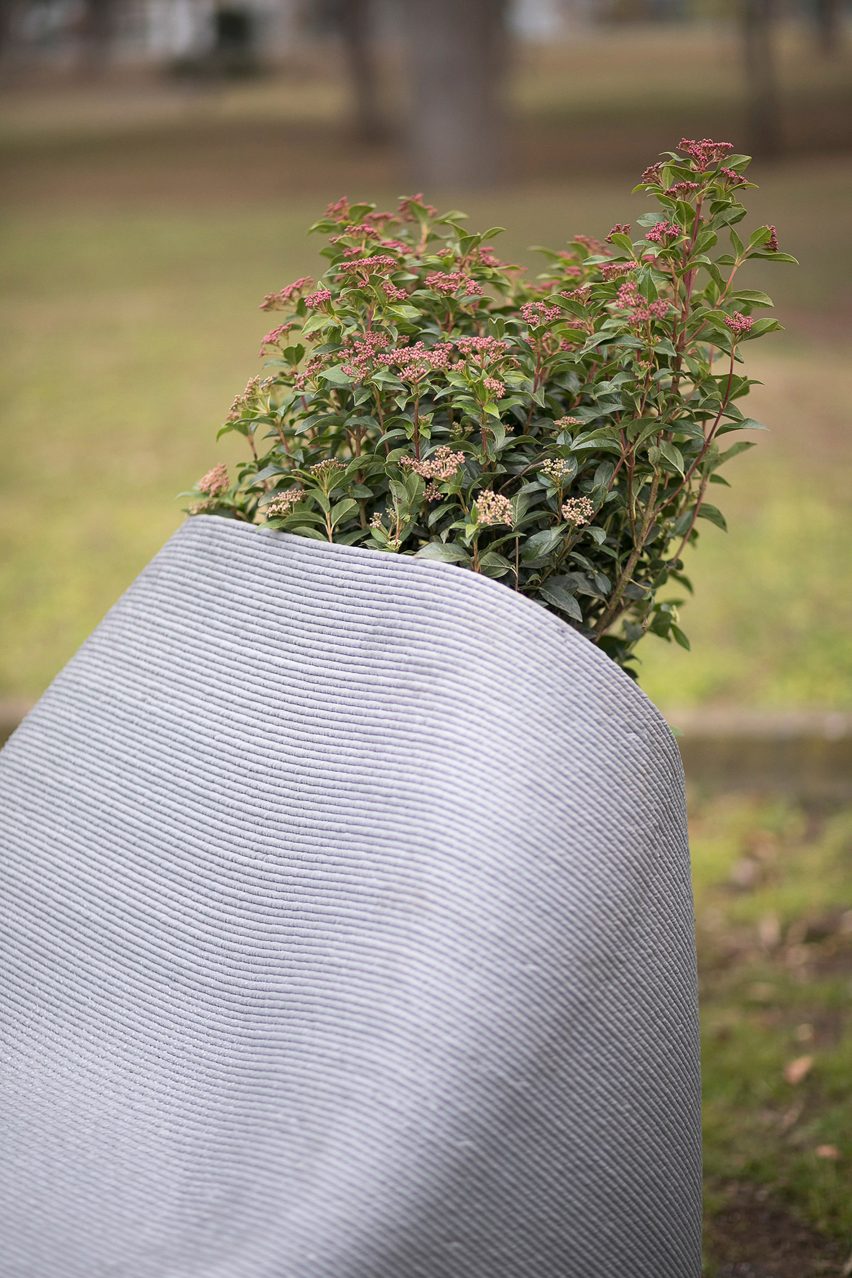
"More than 2,900 citizens of Thessaloniki voted where and how they wanted to see the new furniture of the city," the designers told Dezeen.
"For the production of the furniture, we recycled more than 800 kilos of plastic waste."
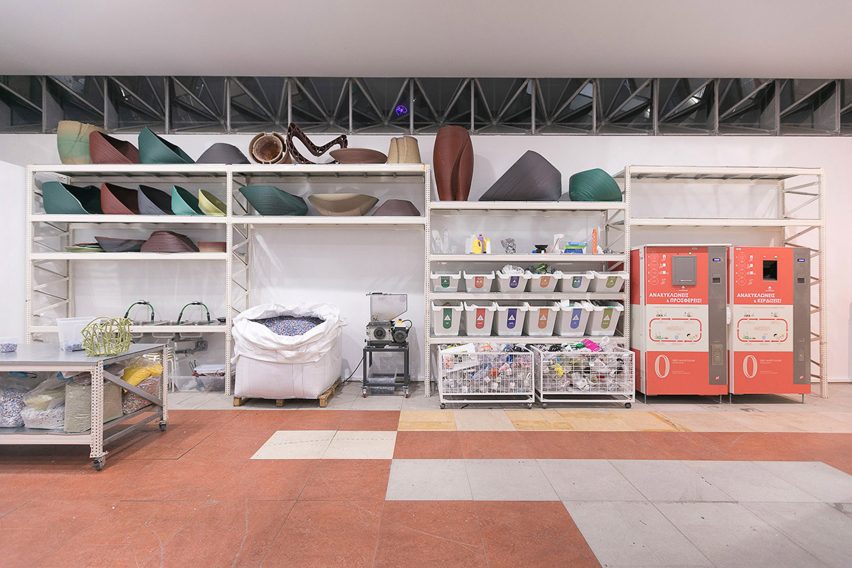
The designers hope to recycle four tons of plastic waste during the project, which they say is equivalent to the amount produced by 14 family households in Greece.
"Thessaloniki is a city with high rates in separating and recycling on a household level in Greece," the designers explained. "At the same time, the size of the city makes measurable the environmental footprint of Print Your City."
"The municipality of Thessaloniki actively supports the programme, enabling us to test this idea for the first time in a city scale and in public space," they said.
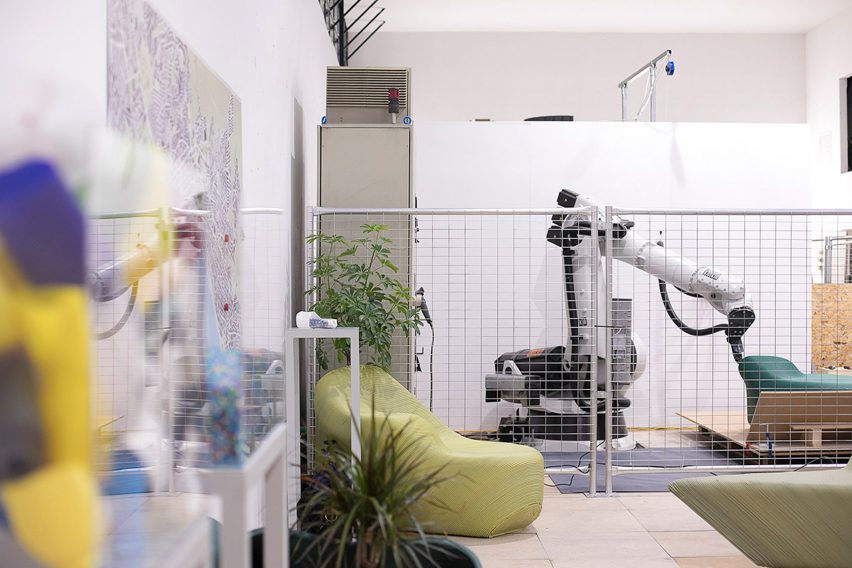
Panos Sakkas and Fonteini Steak founded The New Raw in 2015, after they studied in The Netherlands. They debuted their first furniture prototype from the Print Your City concept in Amsterdam last year with the XXX Bench, made from recycled plastic bags.
They decided to develop the project further as part of the Zero Waste Future programme currently being funded by Coca Cola across Greece and began working in Thessaloniki in November last year, with the project set to run until May 2019.
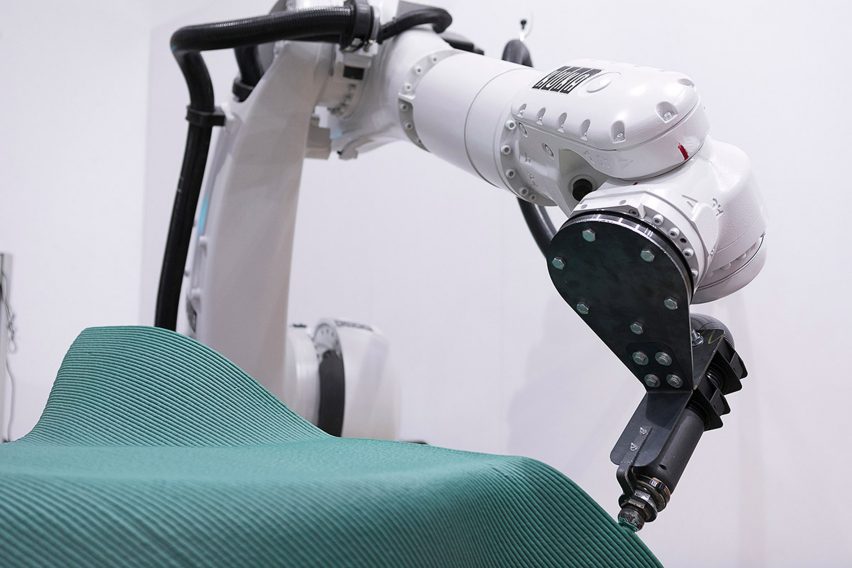
Recycled plastic is booming an increasingly popular material for designers, with recent examples including a chair made from fishing-industry waste, a demountable tricycle and a terrazzo-like surface material developed for use in interior and product design.
But there is some debate about whether designers should focus more on recycling or on the development of new materials.
Young Dutch designers have described recycling as "the only choice", but in a recent interview, curator Jan Boelen told Dezeen that this would not tackle the "fundamental problem" of plastic pollution and that designers should instead focus on bioplastics.